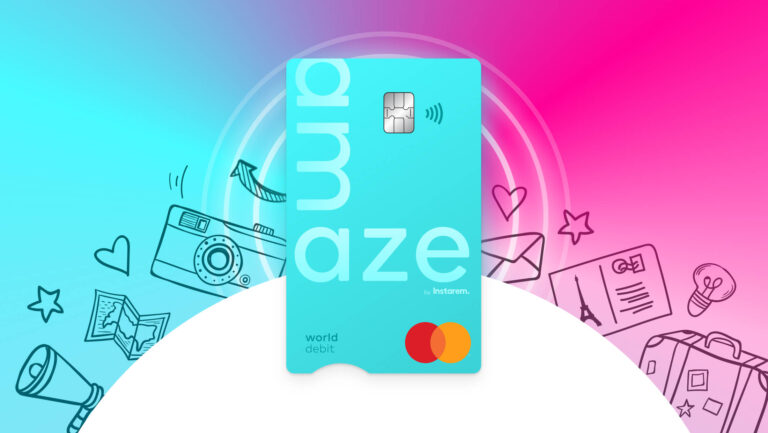5 Things You Need To Know About Indonesia’s New Anti Money Laundering Law

This article covers:
- 1. All financial institutions excluding banks were made public to establish transparency
- 2. The New Anti-Money Laundering Law allows the centre to investigate a wider range of documents and to freeze bank accounts
- 3. Financial service providers could have their licence revoked and shareholders could be blacklisted for five years
- 4. The Big Players, including insurance companies, are expected to play by a wider set of rules
- 5. Indonesia joined hands with Australia to abolish money-laundering
In an unprecedented move, Indonesia has recently issued new rules and regulations to curb money laundering and terror-related financing across a range of financial service providers, including money changers, credit card issuers and electronic money providers.
This step is directed toward bringing its rules up to international standards and join the Financial Action Task Force (FATF), an intergovernmental body fighting money laundering. Here are 5 things you must know about the all-new anti-money laundering law introduced by Indonesia.
1. All financial institutions excluding banks were made public to establish transparency
Indonesia was off FATF’s blacklist two years ago. It took them more than 20 years to break away from the clutches of the military dictator, Suharto, and reform their economy. Once stabilised, next on their agenda was to resolve their endemic problem of corruption which led the way to money laundering and terrorist financing.
Bank of Indonesia’s executive director of payment system regulation, Eny V. Panggabean, said that the new rules would eliminate the risk of money laundering and terrorism-related crimes, thereby promoting real economic growth.
All financial institutions excluding banks were made public to establish transparency and the new rules address developments in the industry, digital economy and innovations in payments that include a more complex money changer business.
The new rules also cover financial institutions such as credit card issuers, fintech start-ups and money-transfer companies.
2. The New Anti-Money Laundering Law allows the centre to investigate a wider range of documents and to freeze bank accounts
The Indonesian House Of Representatives passed the revised law for anti-money-laundering on 5th October, 2010, thereby giving more power to officials fighting corruption.
One of the most notable amendments that was made in this legislation was that the reports published by the Financial Transaction Reports Analysis Centre, a major anti-money-laundering body in Indonesia, would be shared with other government institutions. Earlier, these reports were sent only to the Attorney General’s office, and the power to make a decision rested with them.
It also allows the centre to investigate a wider range of documents and to freeze bank accounts of any person suspected to be involved in dubious financial transactions.
The legislation also pronounces money laundering as a criminal action and all revenue generated from such actions as illegal. Any individual or organisation resorting to criminal activities will be subject to four years of imprisonment or more. The law applies to crimes committed within the Republic of Indonesia and outside.
3. Financial service providers could have their licence revoked and shareholders could be blacklisted for five years
All financial service providers are instructed to report any suspicious activity in the financial transactions of their users. In case, they fail to report any such activity, they will have their licence revoked and the firm’s directors, shareholders and commissioners shall be blacklisted for the next five years.
Also, all financial service providers need to maintain a record of all alleged radical organisations, militant outfits and any individual with links to terrorist organisations or terror-related activities like procurement of weapons of mass destruction in order to cross-check with existing customers.
Transactions across countries will have to be thoroughly assessed for incoming and outgoing transfers. Indonesia no longer accepts financial transactions through ‘shell-banks’ who do not actually have a physical presence in the country where they are incorporated.
4. The Big Players, including insurance companies, are expected to play by a wider set of rules
The Financial Services Authority of Indonesia (Indonesian: Otoritas Jasa Keuangan or OJK) oversees all financial institutions including insurance agencies. Insurance law №40 was enacted on October 17, 2014. Post their actions to curb terrorism in Indonesia, the following modifications have been implemented to keep order in the insurance industry:
- Foreign ownership in insurance companies and insurance intermediaries has been limited to 80%. . The initial limit was set at 30%, owing to the proliferation of foreign investors which makes monitoring difficult. But OJK eased the rule to 80% as other practices to track terror-related financing were in place.
- Dilution of shares is possible under the rule that the total paid-up capital by the Indonesian shareholder will remain as is and when the foreign shares have reached the maximum limit before the addition of new shares.
- Foreign insurers are not permitted to have branches. The legislation only allows an Indonesian incorporated entity to apply for the licence as an insurer.
- All parties such as shareholders, directors, the board of directors, etc. wanting to acquire shares must pass the OJK’s ‘fit and proper’ evaluation.
- An insurance company must have at least one controller who solely controls 25% of shares, or has legal control of the firm’s financial interests.
- There is a minimum limit for every insurer; new insurer has a limit of IDR 100 million, Sharia insurers at IDR 50 million, reinsurers at IDR 200 million, and Sharia reinsurers at IDR 100 million.
- Risk factors specific to tracking adverse claim experience, currency mismatch, reinsurance default, asset defaults and other liabilities which curb money laundering opportunities.
5. Indonesia joined hands with Australia to abolish money-laundering
Recently, Indonesia joined hands with Australia on a USD 380 million ‘six-pronged’ attack tactic to abolish money-laundering and terror funding in their respective countries.
Australian minister Michael Keenan confirmed that the Financial Transaction Reports and the Analysis Center of Indonesia (PPATK), and the Australian Transaction Reports and Analysis Center (AUSTRAC) have agreed on six projects including sending IT specialists from Australia to Indonesia to inspect and boost the PPATK’s systems for analysis, besides conducting solution-based workshops to counter financial crimes including the ones related to terrorist funding.
With all such regulations in place, sending money home to Indonesia is sure to become more secure. Instarem is topping that safety with real-time FX rates and a nominal fee making it a seamless money transfer experience. Try AUD to IDR transfers with Instarem.
 Get the app
Get the app


























